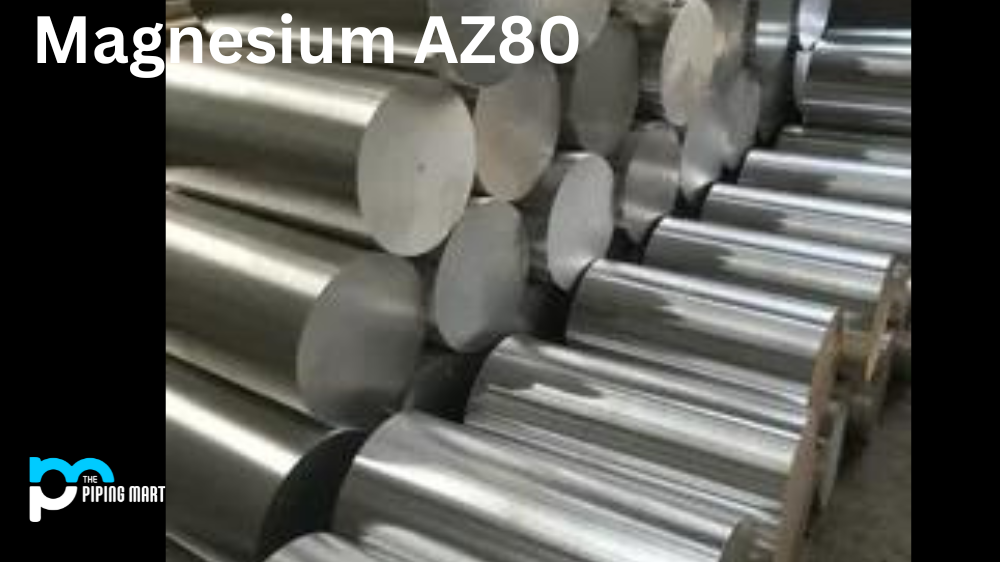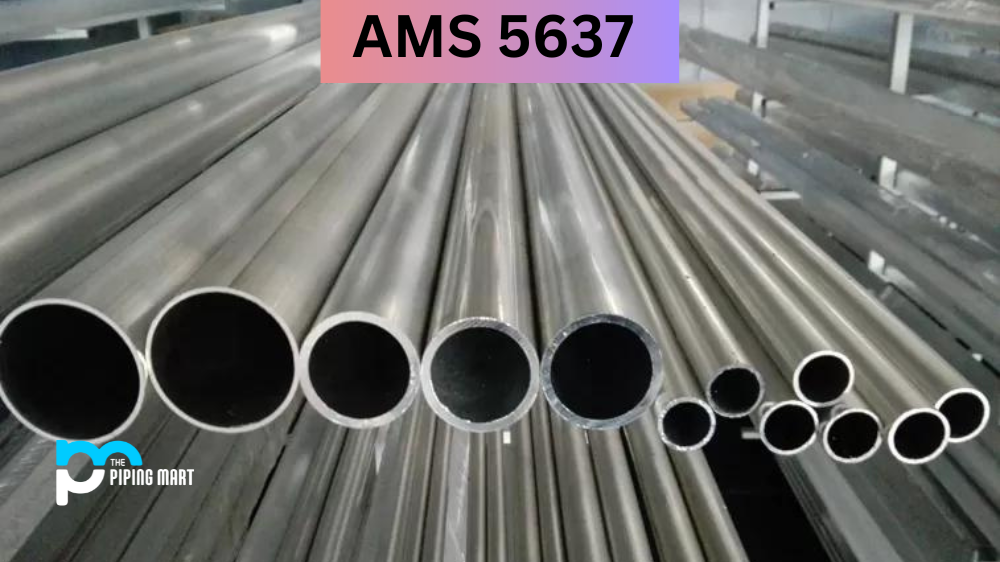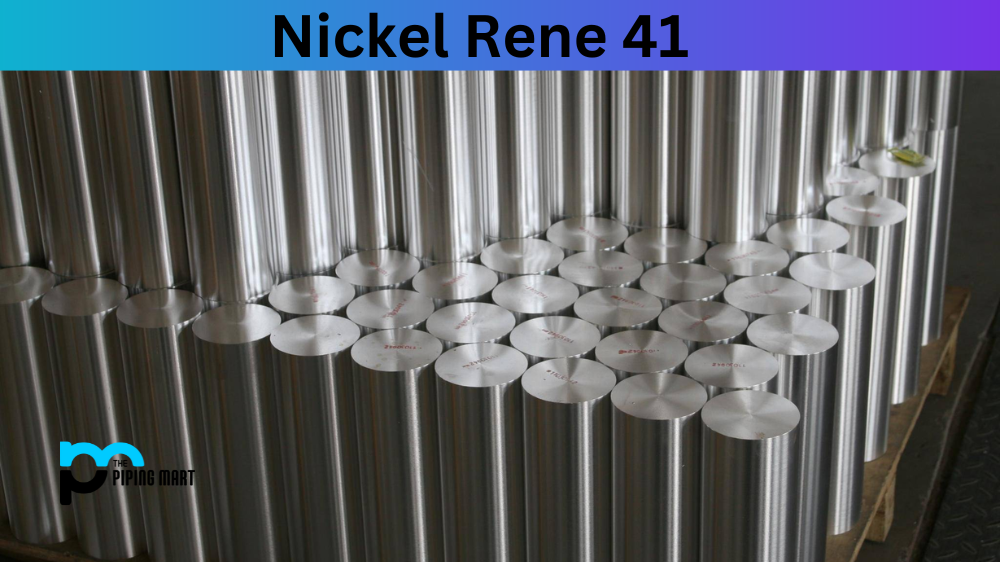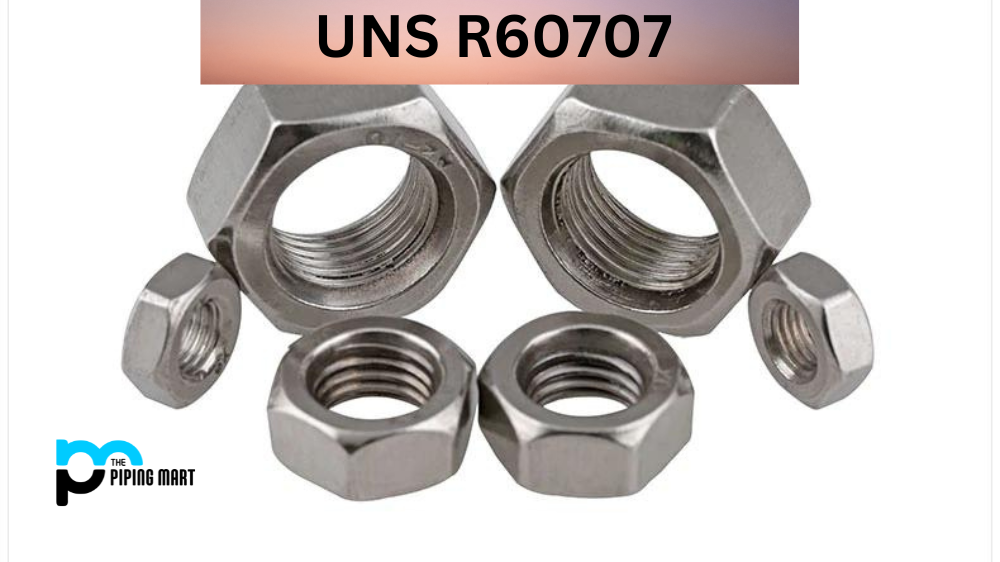Magnesium is a light and strong metal with various industrial applications. Among different magnesium alloys, Magnesium AZ80 is one of the most popular ones. It is a lightweight, high-strength alloy used in various automotive, aerospace, and biomedical applications. In this blog, we will look at everything you need to know about Magnesium AZ80- its composition, mechanical and physical properties, uses, corrosion resistance, heat treatment, and welding capabilities.
What is Magnesium AZ80?
Magnesium AZ80 is an alloy composed of 80% magnesium and 20% zinc, and it’s one of the strongest, lightest materials known to man. This highly corrosion-resistant material offers an excellent strength-to-weight ratio, making it popular for numerous structural applications, including aerospace components and automotive parts.
Magnesium AZ80 Composition
Magnesium AZ80 is an alloy that contains 8% aluminium and 0.5% zinc. Adding aluminium makes the alloy stronger and more complex, while zinc provides better casting ability and improves corrosion resistance.
| Element | Content (%) |
|---|---|
| Magnesium, Mg | 91 |
| Aluminum, Al | 7.80 – 9.20 |
| Zinc, Zn | 0.20 – 0.80 |
| Manganese, Mn | 0.12 |
| Silicon, Si | 0.10 |
| Copper, Cu | 0.050 |
| Iron, Fe | 0.0050 |
| Nickel, Ni | 0.0050 |
Magnesium AZ80 Mechanical Properties
Magnesium AZ80 has excellent mechanical properties such as a high-strength-to-weight ratio, good ductility and impact resistance, and moderate fatigue resistance. It is a perfect option for lightweight applications that require high strength.
| Properties | Metric | Imperial |
|---|---|---|
| Tensile strength | 380 MPa | 55100 psi |
| Yield strength (strain 0.200%) | 275 MPa | 39900 psi |
| Shear strength | 165 MPa | 23900 psi |
| Compressive yield strength (at 0.2% offset) | 240 MPa | 34800 psi |
| Shear modulus (typical for steel) | 17 GPa | 2470 ksi |
| Elastic modulus | 44.8 GPa | 6498 ksi |
| Poisson’s ratio | 0.35 | 0.35 |
| Elongation at break (in 50 mm) | 7% | 7% |
| Hardness, Brinell (500 kg load, 10 mm ball) | 82 | 82 |
| Hardness, Knoop (estimated from Brinell) | 106 | 106 |
| Hardness, Rockwell A (estimated from Brinell) | 35 | 35 |
| Hardness, Rockwell B (estimated from Brinell) | 50 | 50 |
| Hardness, Vickers (estimated from Brinell) | 93 | 93 |
| Machinability (relative rating, 100 best) | 100 | 100 |
Magnesium AZ80 Physical Properties
Magnesium AZ80 has a low density of 1.8 g/cm³, much lower than aluminium and steel. It also has a high melting point of 640 °C and a thermal conductivity of 76.0 W / (m.K). Its low density and high thermal conductivity make it an excellent option for applications that require lightweight and good heat dissipation.
| Properties | Metric | Imperial |
|---|---|---|
| Density | 1.80 g/cm3 | 0.0650 lb/in³ |
Magnesium AZ80 Thermal Properties
| Properties | Metric | Imperial |
|---|---|---|
| Thermal expansion co-efficient (0-100°C/32-212°F) | 26 µm/m°C | 14.4 µin/in°F |
| Thermal conductivity | 76 W/mK | 527 BTU in/hr.ft°F |
Magnesium AZ80 Equivalents
- ASTM A276
- ASTM A580
- ASTM A412
Uses
Magnesium AZ80 is widely used in various industrial applications such as aerospace (aircraft frames, engine components), automotive (wheel covers, door panels), and biomedical (implantable devices). The combination of lightweight and high strength makes it a perfect material for applications that require weight reduction, high performance, and improved fuel efficiency.
Corrosion Resistance
Magnesium AZ80 exhibits good corrosion resistance, especially compared to other magnesium alloys. It is not as corrosion-resistant as aluminium or stainless steel, but it is still suitable for applications that require moderate corrosion protection.
Heat Treatment
Magnesium AZ80 can be heat treated to improve its mechanical properties. Solution treatment at 415 °C for 24 hours increases its strength and ductility. However, averaging above 220 °C may reduce its mechanical properties.
Machining
Magnesium AZ80 is relatively easy to machine due to its low density and high thermal conductivity. However, it tends to produce chips that ignite easily, so proper cooling and chip control measures must be taken during machining.
Welding
Magnesium AZ80 can be welded using various methods, such as resistance spot welding, gas tungsten arc welding, and friction stir welding. However, welding magnesium alloys requires strict safety measures due to the risk of ignition and extensive training and expertise.
Conclusion
Magnesium AZ80 is a lightweight, high-strength alloy with excellent mechanical properties and good corrosion resistance and is perfect for industrial applications, including aerospace, automotive, and biomedical. Understanding the composition, mechanical and physical properties, uses, corrosion resistance, heat treatment, machining, and welding capabilities is essential to help you make better material selection decisions. Contact a reputable magnesium alloy supplier for more information about Magnesium AZ80 and how it can be tailored to your needs.

Abhishek is a seasoned blogger and industry expert, sharing his insights and knowledge on various topics. With his research, Abhishek offers valuable insights and tips for professionals and enthusiasts. Follow him for expert advice on the latest trends and developments in the metal industry.




